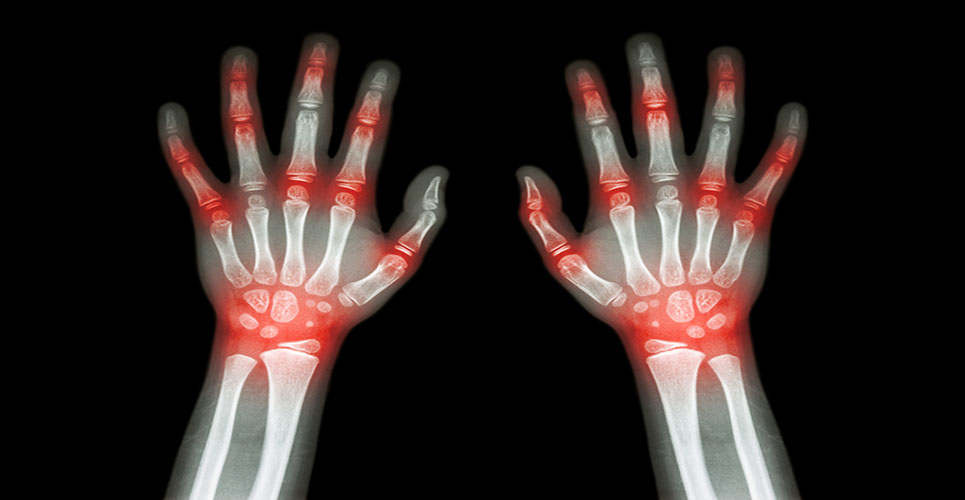teaser
Treatment with Cimzia® (certolizumab pegol) is associated with rapid and sustained clinical response over 28 weeks in a broad population of moderate to severe rheumatoid arthritis (RA) patients, according to research presented at the American College of Rheumatology’s (ACR) 2011 Annual Scientific Meeting.
The conference, held in Chicago from November 5-9, heard results of the REALISTIC (RA EvALuation In Subjects receiving TNF Inhibitor Certolizumab pegol) study, which demonstrated consistent efficacy and improved physical function irrespective of prior anti-TNF therapy, concomitant disease modifying antirheumatic drugs (DMARDs), or duration of disease.
“These results are encouraging because they show that the rapid improvement in disease activity, as a result of the clinical response to certolizumab pegol, is sustained in patients who failed on previous therapies,” said co-lead investigator Maxime Dougados, Professor of Rheumatology at Rene Descartes University in Paris.
“The data from the REALISTIC study is of interest because the trial included a broad RA patient population, which reflects aspects of the diversity we see day-to-day in clinical practice.”
Patients (n=1,063) who had participated in the 12-week randomised, double-blind, placebo-controlled REALISTIC study, either on certolizumab pegol or placebo plus DMARD, were given the option of participating in an open-label extension (OLE) study for a further 16 weeks (28 weeks in total).
In total 954 patients entered the extension study and were given certolizumab pegol, including those patients that were previously treated with placebo in the 12-week controlled period of the trial.
At Week 28, positive efficacy results were comparable between patients who had received certolizumab pegol for 28 weeks in total and those that switched from placebo to certolizumab pegol after 12 weeks.
A total of 770 patients who had previously been given certolizumab pegol, and 184 patients who had been given placebo, entered the extension study.
At 28 weeks, ACR20 response rates were 59.7% (n=770) for patients taking certolizumab pegol for 28 weeks and 53.3% (n=184) for those taking it for 16 weeks following the initial placebo phase.
DAS28(CRP) remission (DAS28 <2.6) was achieved in 22.9% and 21.7% (p=no significant difference) of patients, respectively, while DAS28(ESR) remission (DAS28 <2.6) was achieved in 15.2% and 11.4% (p=no significant difference) of completers, respectively.
Treatment with certolizumab pegol was associated with rapid and consistent efficacy and sustained improvements in disease activity and physical function up to Week 28 in a diverse group of patients with RA closely resembling those seen in routine clinical practice.
Rapid efficacy was also seen across patients receiving concomitant DMARDs at baseline, regardless of the number or type of concomitant DMARDs.
In the placebo-controlled portion of the trial, the most common serious infections were lower respiratory tract and lung infections.
The most common adverse events were infections and infestations, musculoskeletal and connective tissue disorders, and nervous system disorders.
Incidence of adverse in the OLE phase was 305.8 events per 100 patient years in patients randomised to certolizumab pegol in the double blind period compared to 406.2 in patients randomised to placebo and switched to certolizumab pegol in the OLE. Incidence of serious adverse events per 100 patient years was 14.7 vs 16.3, respectively.
American College of Rheumatology
